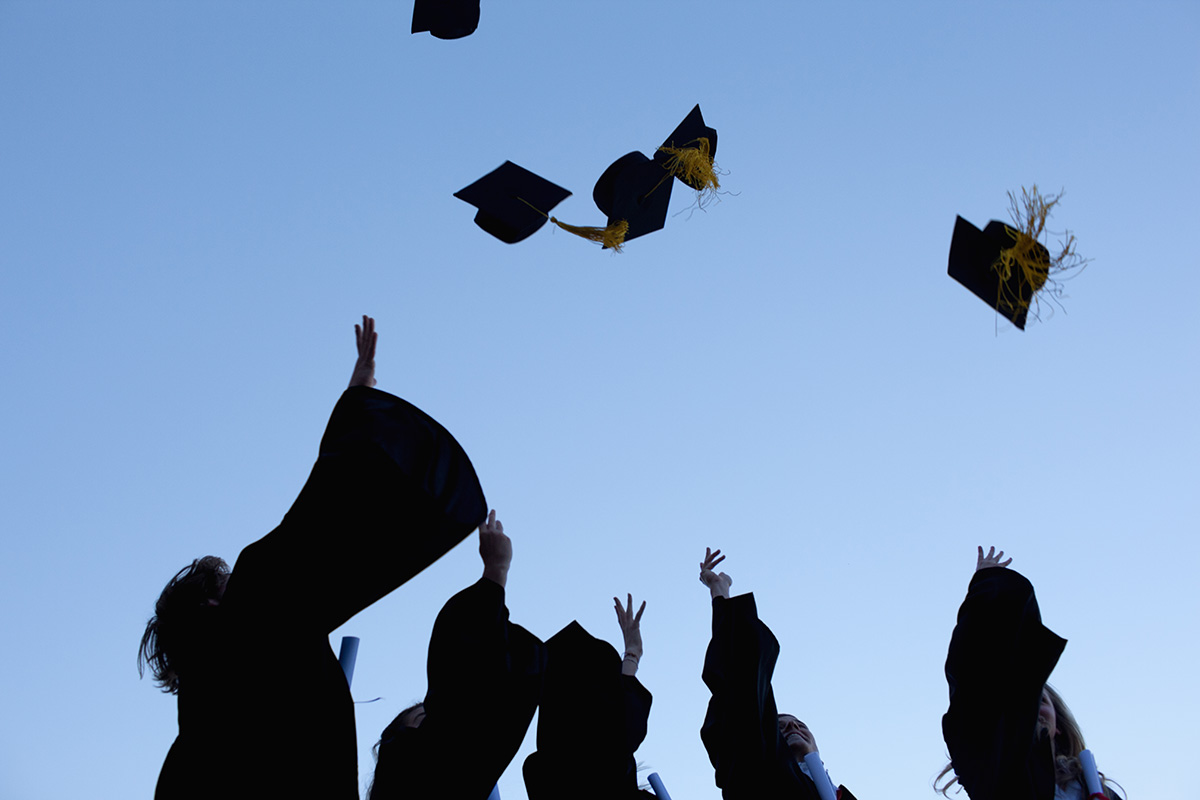Supporting the Next Generation of Scientists
Supporting the next generation of scientists is a matter of great importance to the Wuppertal Institute. Doctoral dissertations, master's theses and bachelor's theses are a source of fresh inspiration for our research. At the same time, we help to nurture the Institute’s up-and-coming scientists.
As an implementation-oriented research institute with an interdisciplinary and transdisciplinary approach, the Wuppertal Institute cooperates with numerous universities both inside Germany and internationally in order to strengthen the disciplinary foundation of its scientific work. This applies in terms of both the research projects carried out by the Institute and the collaborative support provided to the next generation of scientists through doctoral programmes.

Professors and scientists conducting their own research at the Wuppertal Institute supervise doctoral projects in cooperation with external professors. A particularly close institutionalised academic exchange is enjoyed with the universities of Wuppertal, Kassel, Osnabrück and Lüneburg. However, doctoral supervision arrangements also exist with many other universities and depend on the specific topic and the best way of providing support.
In addition to dissertations, a large number of final theses, such as bachelor's and master's theses, are also co-supervised at the Institute. These are born out of the teaching activities of the Wuppertal Institute’s scientists at partner universities. Supervision is also possible for topics proposed by students on their own initiative. If a thesis is written in cooperation with the Wuppertal Institute, it can be published in the "Wuppertaler Studienarbeiten" (Wuppertal student research papers) series in agreement with the relevant university.
Dissertations written within the framework of the Wuppertal Institute's doctoral programmes address selected application-oriented sustainability and transformation research topics. Close cooperation with the Institute’s divisions and research units is key to this approach and ensures that there are strong links to the Institute's research agenda and a regular exchange of ideas. Experienced research scientists provide one-to-one supervision of the doctoral projects. As a rule, papers are developed in connection with current projects for which the Institute has obtained research funding. This gives doctoral students the opportunity to establish a direct and fascinating link to real-world practice – with personal supervision and encouragement from our scientists.
Dissertation colloquia
Subject-specific dissertation colloquia are chaired by the Wuppertal Institute's research professors. They provide an opportunity for regular discussion about ongoing dissertation projects.
Criteria for admission to a doctoral programme
In order to earn a doctorate at the Wuppertal Institute, applicants must meet the following criteria:
- The topic has to be consistent with the Institute’s research agenda and with one of the areas of focus of its divisions or research units.
- A professor at the Institute with the authorisation to award doctorates or a university professor must be willing to supervise the project and to carry out the university procedure for granting doctorates. As a research institute outside the university system, the Wuppertal Institute has no direct right to award doctorates of its own but instead cooperates with various universities to ensure that each eligible student can receive their doctorate.
- In the case of internal doctoral students, the topic of the planned dissertation must relate to the Institute’s current project work, generate clear methodological added value or help to open up new research topics.
- In the case of external doctoral students, funding for the dissertation must be secured, for example, through an external scholarship.
- The applicant must be interested in engaging in a wide-ranging exchange of ideas within the Institute and be willing to actively participate in internal discussion formats.
- The applicant will be required to demonstrate outstanding academic performance as well as an organised and independent working style. Further, they must make a commitment to comply with the principles and rules of good scientific practice.
If you are interested in earning your doctorate at the Wuppertal Institute, please consult the Institute's current calls for applications. The current opportunities can be found on our careers page.
You may also take a proactive approach. Please start by outlining your idea for your dissertation project on a single page and send it together with your CV to the Wuppertal Institute (address it to Annika Rehm, see contact information, below). We will use your documents to assess the compatibility of your idea with our ongoing research topics. If your dissertation project is of interest to us, we will be happy to advise you on the next steps.
Successfully Completed Academic Qualification Procedures
Contact
Annika Rehm
Scientific Advisor Scientific Quality Management and Strategy Development
Tel.: +49 202 2492-273
